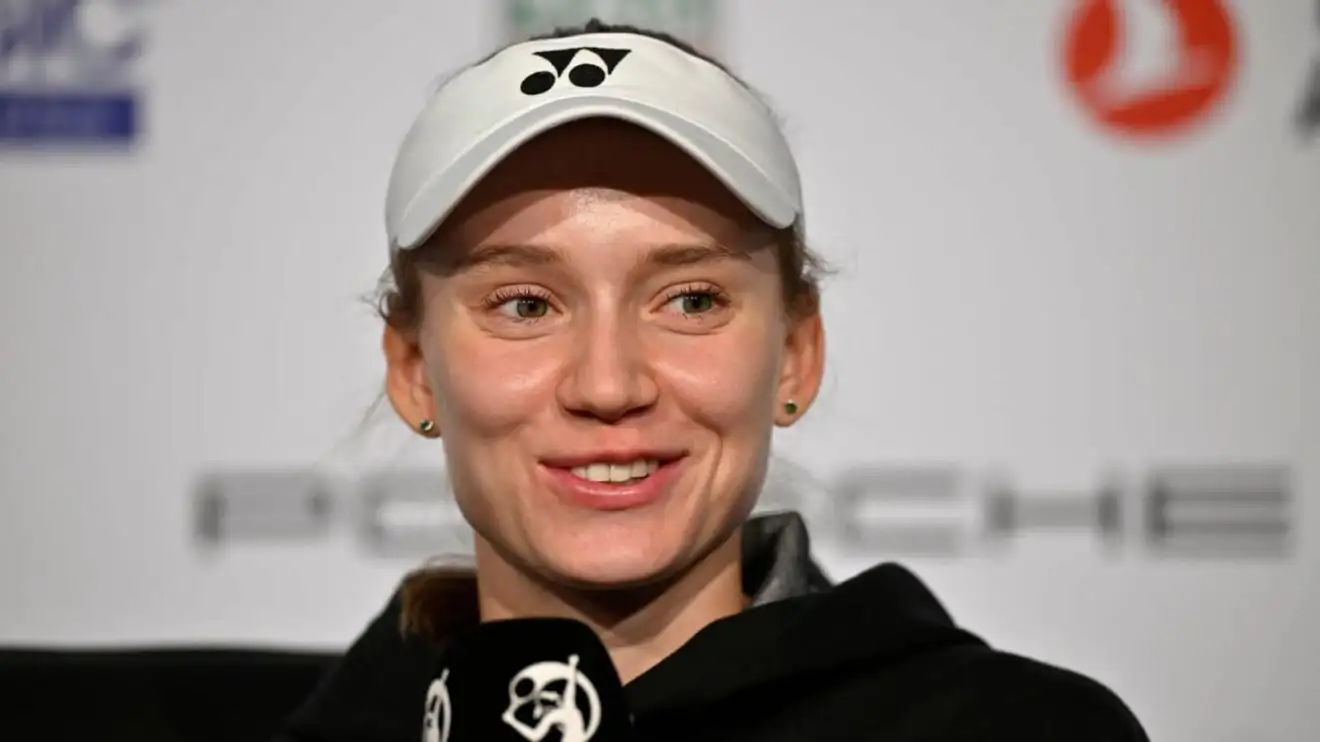
Elena Rybakina is gearing up for a “big test” at the WTA Finals as she returns to competition following an extended absence due to injury and a recent, high-profile split with her coach. Former doubles world No. 1 Rennae Stubbs recently weighed in on the challenges facing Rybakina, who has not played since her first-round victory at the US Open in late August. A persistent lower back injury forced her to withdraw from the second round at Flushing Meadows, sidelining her for the rest of the season’s North American and Asian swings. Since then, she has missed nearly a dozen tournaments in 2024 due to a mix of physical issues and illness, making her comeback at the year-end WTA Finals highly anticipated but also fraught with uncertainties.
The Kazakh player, ranked world No. 5, has seen her season disrupted by injuries and other challenges, including her recent split with longtime coach Stefano Vukov. The timing of the split, just days before the US Open, fueled speculation about her stability heading into the season’s final stretch. Vukov had been a vital figure in Rybakina’s rise, providing guidance and support through her breakthrough moments, including her 2022 Wimbledon title. However, their split left questions about her support system and coaching staff, which adds another layer of intrigue as she heads into the high-stakes environment of the WTA Finals in Riyadh.
Despite her setbacks, Rybakina has managed to secure her spot at the WTA Finals for the second consecutive year. The year-end championships bring together the world’s top eight players, making it one of the most competitive tournaments of the season. But her return to this elite stage is not without challenges, as she faces tough competition right out of the gate. Stubbs, a five-time Grand Slam doubles champion, commented on Rybakina’s prospects on her podcast, acknowledging her strong indoor game but expressing uncertainty over her current form. “I don’t know how Elena is going to do,” said Stubbs. “This is going to be a very big test for her. Who is going to be coaching her? Who is she there with? We’ll find out in a matter of days, but it will be interesting. Look, she plays really good tennis indoors. Striking is good, but we don’t know how she’s going to be, fitness-wise, match-wise.”
Rybakina has indeed demonstrated skill on indoor courts, but after such a lengthy period away from competition, her readiness to face the high-caliber opponents at the WTA Finals remains a significant question. She has been placed in a formidable group that includes world No. 1 Aryna Sabalenka, one of the title favorites. Rybakina and Sabalenka have a well-established rivalry, with the Kazakh trailing 6-3 in their head-to-head record. Their last encounter at the Madrid Open ended in Sabalenka’s favor, though Rybakina claimed a decisive victory over her earlier in the year, defeating Sabalenka in the Brisbane International final.
Alongside Sabalenka, Rybakina’s group also features Italy’s Jasmine Paolini and China’s Zheng Qinwen, both challenging opponents. Rybakina fell to Paolini in the French Open quarter-finals, a loss that underscored her inconsistent performances throughout the season. Zheng, meanwhile, has emerged as one of the in-form players during the latter half of the season, making her another formidable hurdle for Rybakina as she seeks to advance. This challenging group placement highlights the tough path Rybakina faces if she hopes to make an impact at the WTA Finals, a tournament where she was unable to move past the group stage last year.
While her season has been turbulent, Rybakina has managed to achieve notable successes in 2024, including title wins in Brisbane, Abu Dhabi, and Stuttgart. She also reached finals in Doha and Miami and made a strong showing at Wimbledon, advancing to the semi-finals. These accomplishments underscore her capability when in form, but her fitness and readiness after months of interrupted play are uncertain. Rybakina’s game, known for its powerful serves and aggressive baseline play, will need to be at its sharpest if she hopes to contend with top players like Sabalenka, who excels in high-pressure environments.
The challenges of navigating a season marked by illness and injury, compounded by the split from Vukov, have made this one of Rybakina’s most difficult years on tour. The dynamic between a player and coach is crucial at the elite level, and a coaching change can disrupt routines and impact mental preparedness. With Vukov’s departure, the identity of Rybakina’s new coach, or if she even has one for the WTA Finals, remains unclear. As Stubbs pointed out, “Who is going to be coaching her?” is an open question. This uncertainty could affect her confidence and strategy during matches, especially in a high-stakes, round-robin format where each match is crucial.
Rybakina’s WTA Finals campaign not only represents a chance to end her season on a high note but also an opportunity to solidify her place among the tour’s elite despite a challenging year. A strong showing in Riyadh could help her regain momentum heading into the 2025 season, allowing her to re-establish herself as a top contender. However, the obstacles she faces—both from a physical and competitive standpoint—mean that the tournament will serve as a real test of her resilience and adaptability.
Ultimately, Rybakina’s return at the WTA Finals will be watched closely, not just for the outcome of her matches but also for indications of how she manages her game and handles the pressures following a turbulent year. The season’s final event presents her with a unique platform to prove her competitiveness against the world’s best, and if she can navigate her way through her challenging group, it could signal a comeback for the Kazakh star as she looks to leave her mark on the WTA Finals.
Leave a Reply